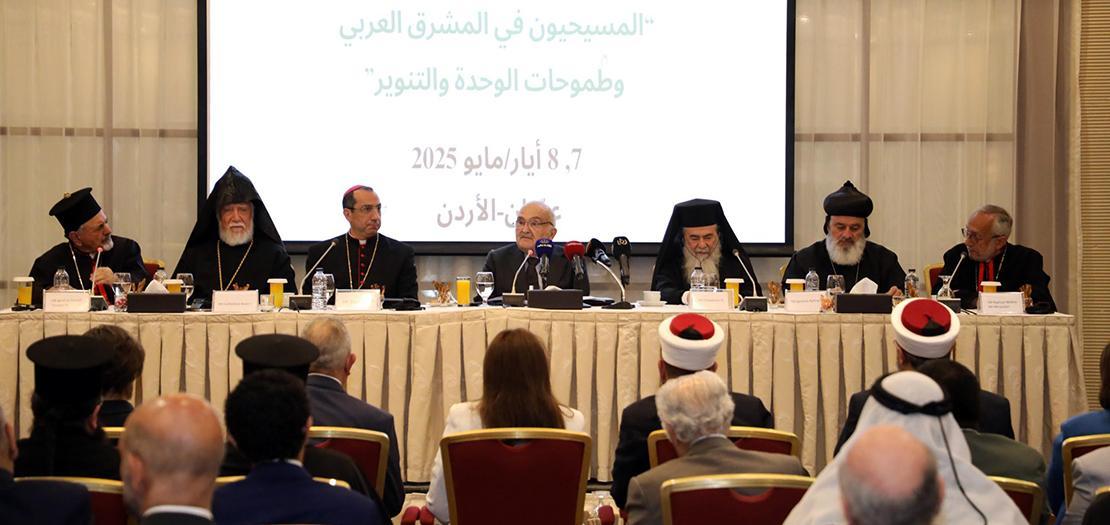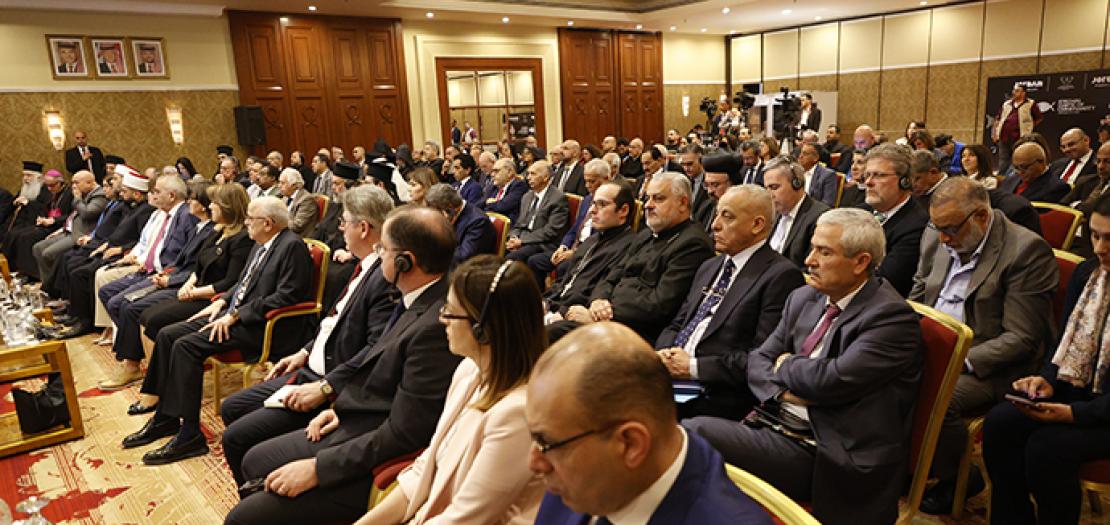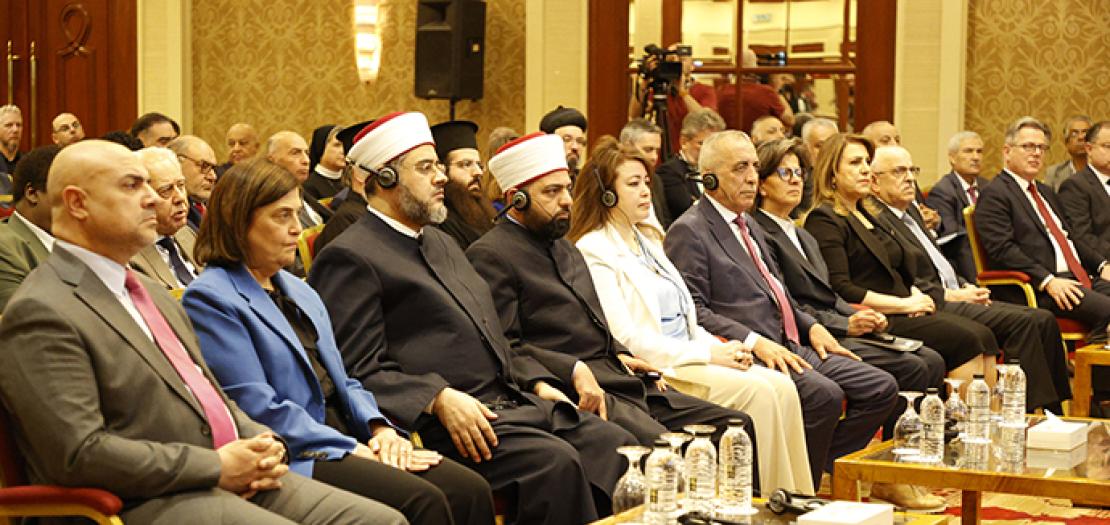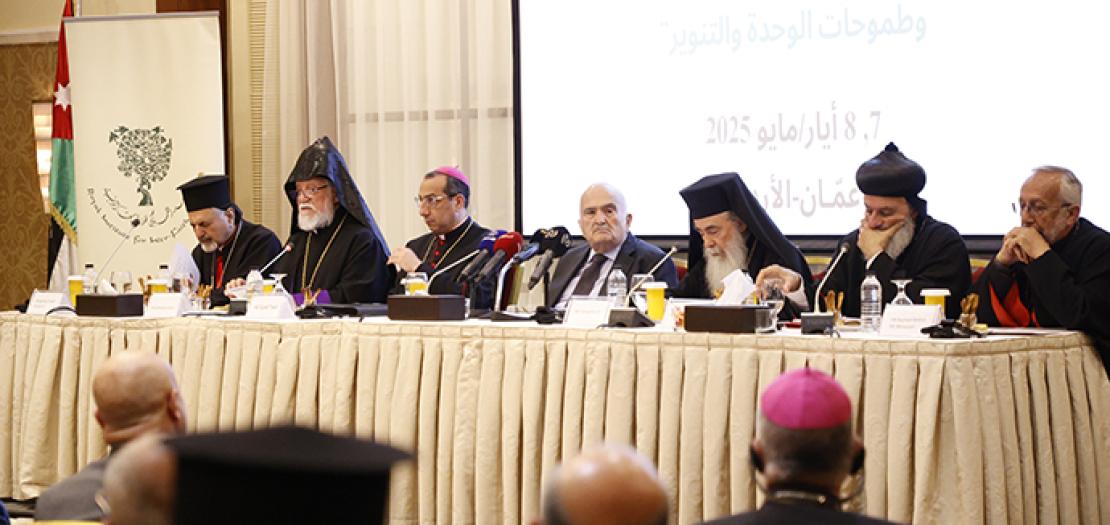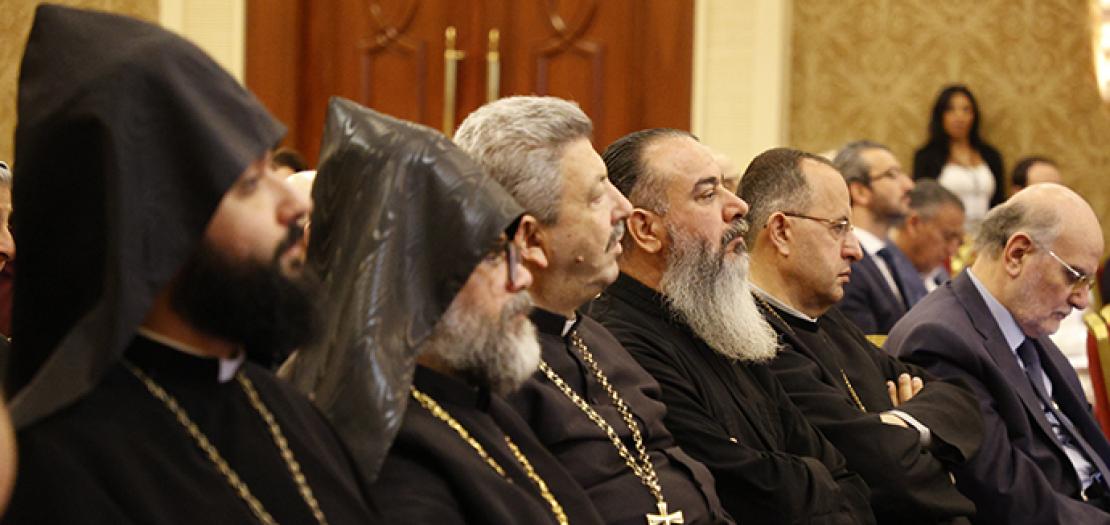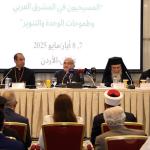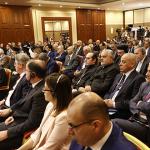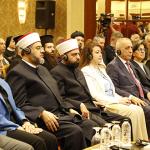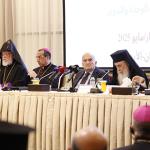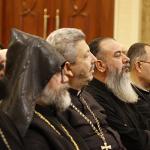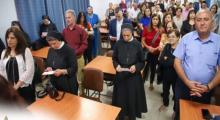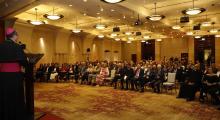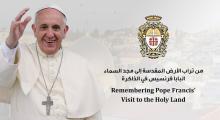Issued by the Catholic Center for Studies and Media - Jordan. Editor-in-chief Fr. Rif'at Bader - موقع أبونا abouna.org
HRH Prince El Hassan Ibn Talal, President of the Board of Trustees of the Royal Institute for Inter-Faith Studies (RIIFS), on Wednesday May 7 inaugurated the Christians in the Arab Levant and the Aspirations of Unity and Enlightenment conference, organized by the Institute.
In his address, Prince El Hassan stressed that freedom of belief and full, equal citizenship are the cornerstones of a modern, inclusive society. He emphasized the legitimacy of diversity in the Levant a region he described as the "the Levant of all Levantines" and called for embracing difference and promoting full equality based on citizenship, partnership, and solidarity against polarization and hatred.
Prince El Hassan underscored the importance of cultural and human dialogue among followers of different religions and of strengthening shared values to foster a cooperative independence in the Levant, while reaffirming the common humanity of all its people.
He called for a unified understanding of regional policies to preserve the Levant's balance amid today’s turbulent global environment. Highlighting the region’s diversity and centrist worldview, he affirmed that Islam is rooted in justice, equality, and the protection of the rights of all citizens regardless of race, gender, or faith. He also referred to the Sykes-Picot Agreement as a prelude to further religious and sectarian fragmentation.
The opening session featured several prominent Christian leaders, including Patriarch Theophilos III, Greek Orthodox Patriarch of Jerusalem; Patriarch Ignatius Aphrem II, Syriac Orthodox Patriarch of Antioch; Catholicos Aram I, head of the Armenian Orthodox Catholicosate of Cilicia; Patriarch Ignatius Youssef III Younan of the Syriac Catholic Church; and Patriarch Raphael Bedros XXI Minassian of the Armenian Catholic Church.
Patriarch Theophilos III praised His Majesty King Abdullah II’s role in interfaith dialogue and protection of holy sites in Jerusalem. He warned of the demographic, economic, and violent challenges facing Christians in the Middle East, particularly in war-torn Gaza, where Christians continue to hold on to their homeland.
Patriarch Ignatius Aphrem II highlighted the historical coexistence and shared heritage of the region’s peoples. He noted that Christians and Muslims co-authored the Arab civilization from the 7th century onward, especially through the contributions of Christian and Syriac scholars during the Abbasid era.
Catholicos Aram I said religious and cultural tolerance is now a necessity rather than a choice, calling for a new, context-sensitive dialogue framework and warning against the politicization of religion. He emphasized the need to transition from dialogue to peaceful coexistence amid regional religious and cultural diversity.
Patriarch Younan called for strengthening values of brotherhood and coexistence, asserting that Christianity is deeply rooted in the culture of the East and that enlightenment is essential for resisting extremism.
Patriarch Minassian expressed appreciation for the generosity of the Jordanian people and the Hashemite leadership in welcoming Christians, including Armenians at the start of the last century and Iraqi and Syrian Christians fleeing ISIS violence.
The conference will continue on Thursday, May 8, following three sessions held on its first day.


